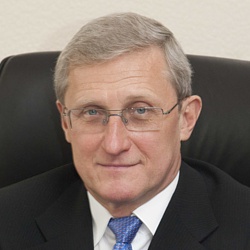Combination of theoretical training with practical work experience
Contracts with oil and gas leading companies give opportunities for students to gain competences in real research and production projects during various internships.
Field of study
Oil and Gas Engineering
Master's
Full–time
English
₽ 341 500
$ 6300 / € 6100
Graduates of the Oil and Gas Engineering Program are at the forefront, extracting these valuable resources, applying cutting-edge technological solutions, and transporting oil, oil products and gas to consumers.
Our graduates are highly qualified fuel energy specialist, they deal with field development and hydrocarbons transportation and storage. Their professional goal is to conduct engineering surveys, scientific research and develop fundamentally new technologies for the oil and gas complex. They win government international grants and do commercial projects.
International students do not need to study at the preparatory faculty, and Russian students get a profession, improving their foreign language skills.
Contracts with oil and gas leading companies give opportunities for students to gain competences in real research and production projects during various internships.
Students choose up to one quarter of the specialized courses on their own. This allows them to master niche domains and gain knowledge in related fields. There are scientific mentors who help student to determine their study course and accompany them in working on projects and conducting research..
Practical work takes up a fifth of the entire curriculum. Under the mentors’ guidance, students annually take part in various scientific and practical conferences, the International Engineering Championship “CASE-IN” and the International Oil and Gas Youth Forum “Hackathon Oil TATNEFT Challenge” in the field of “Oil and Gas business”, winning national and international prizes.
All teachers have extensive profound knowledge of the taught discipline. Most of them have comprehensive practical experience in leading companies in the oil and gas industry.
Year 1
Year 2
Internships
State final exams
Preparation and defense of the final qualifying paper
Contracts with leading oil and gas and oilfield service companies give students opportunities to gain competences in a wide range of real research and production projects while mastering academic disciplines, as well as during various internships.
The program is focused on the integration of education, science, innovation and business. The most effective cooperation is carried out with PJSC Tatneft, Gazprom Geotechnologies LLC, Gazprom Transgaz Moscow LLC, Pipeline Construction Research Institute JSC, Institute of Oil and Gas Problems (Russian Academy of Sciences). Specialists of these organizations conduct seminars, practical and master classes, involving students in real projects and teaching them how to apply their knowledge in practice.
Practical training and internship venues
The curriculum includes research, technological and pre-graduation practical training.
This training is aimed at building competences in the following professional areas: oil, gas and gas condensate production; diagnostics of pipelines and technological equipment of gas industry; diagnostics of facilities of oil and petroleum products trunk pipelines.
Students gain practical skills participating in real projects of PJSC Tatneft, LLC Gazprom Geotechnologies, LLC Gazprom Invest, LLC Gazprom Transgaz Moscow, and PJSC Gazprom Neft.
Students make full use of all the resources of the Department of Subsoil Use and Oil and Gas Engineering of the RUDN Academy of Engineering (laboratories of hydrodynamic processes of oil and gas production, rational subsoil use, VR laboratories, etc.), as well as partner companies. An important feature of the learning process is building teamwork skills in difficult conditions of oil and gas wells operation, collection and transportation of oil and gas, participating in real team projects during practical training and internships in leading oil and gas and service companies.

Professor of the Department of Subsoil Use and Oil and Gas Business, Doctor of Technical Sciences, Professor, Honored Scientist of the Russian Federation, twice laureate of the Russian Government Prize in Science and Technology, laureate of Academician I.M. Gubkin Prize, twice laureate of N.K. Baibakov Prize, laureate of A.N. Kosygin Prize of the Russian Union of Commodity Producers, Honorary Worker of Higher professional education of the Russian Federation, Honorary Petrochemist, Honorary Worker of the fuel and energy complex.
Phone: +7 (495) 952-63-53
E-mail: kapustin-vm@rudn.ru
Graduates of the Oil and Gas Production and Transportation Technologies program can further build their careers in one of the following areas:
Interdisciplinary exam (computer test).
Foreign citizens enroll in the master’s degree program on the basis of competitive selection, taking into account the assessment of the portfolio provided by a foreign citizen.
FEEDBACKS
The knowledge I gained in the program is an excellent base for starting a career in the oil and gas industry. The teachers interpret the material so that the students can easily understand difficult moments. I would like to note that all the teachers are very friendly people who are ready to meet the students halfway and give the necessary support. They offer all the necessary material for study, and also, importantly, give various creative tasks that require conducting independent in-depth research and drawing conclusions.
My studies at the Peoples’ Friendship University of Russia gave me the most pleasant memories. As in any other educational institution, there are some organizational issues, but this is not a big problem. I am grateful to sensitive professional teachers who often worked with me individually and expanded my knowledge in the oil and gas industry. I am glad that the master’s degree provoked a desire to continue my studies at the university, now I am studying in postgraduate school in the field of “Geology, exploration and development of minerals”, I hope that I will be a PhD in Engineering!
I am grateful to the teachers of the department for their responsiveness and professionalism, we had a small group of five people, that is we almost had one-to-one classes with our teachers. I would also like to note that among elective disciplines, you can choose not only those related to the extraction and transportation of oil and gas, but also special disciplines dedicated to the processing of petroleum raw materials. For me, such a wide range of choices within my field has become very useful.